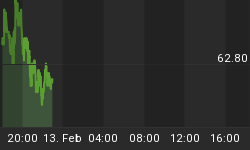The concept of risk and how it is defined by investors and advisors is something that we've discussed before, and which we feel warrants periodic reminders.
Over time the definition of "risk" has changed, thanks mostly to academics who teach finances classes and venerable money managers with advanced degrees (many of whom are now broke). The commonly accepted definition of risk among investors and advisors has essentially been substituted with the definition of volatility.
While there have been many reasons for this change, among them is the fact that volatility is measureable, while risk is not. Additionally, while risk can be conceptualized and considered broadly when making investment decisions, risk is quantifiable. Because of these aspects, methods have been developed for reducing volatility as means of reducing "risk" to investors.
Essentially, this redefining of risk has allowed less confident, experienced, or knowledgeable money managers and investors, who can now quantify "risk" to sleep at night because their portfolios are somehow "safer."
As James Montier of GMO so perfectly stated in his recent piece, 7 Immutable Laws of Investing, risk isn't a number, "and it is foolhardy to try to reduce it to a single figure."
In reality Alpha, Beta, Delta, or any other numerical characteristic of an investment's volatility is useless in defining risk. A low Beta, for example, really only indicates that investors will lose money more slowly if an investment begins to fall.
The problem is that, in modern finance, risk is inaccurately defined by a measure of volatility; but risk isn't volatility. Risk is the likelihood that an investment will fall in value; or, to borrow another phrase from Montier: "Risk is the permanent loss of capital."
Despite the best efforts of academics and quants the world over, lower volatility doesn't make investments safer. No volatility measure in the world would consider the risk of an earthquake, tsunami, and nuclear meltdown in Japan; or uprisings in Libya, Tunisia, Iran, Syria, Bahrain, and Saudi Arabia - much less all of them occurring at the same time.
It is of utmost importance that investors, both professional and part-timers, admit and understand that financial markets don't operate on mathematical principals. Rather, they are the study of behavioral psychology. As such, they can't be defined by numbers.
In fact, looking across all the worlds' markets, there is only one investment that can be simplified to a mathematic formula, and that is the relationships between bond prices and interest rates. Everything else, being unable to be expressed in a simple formula, is only theory.
At the end of the day an investment, a share of stock for example, is only worth what someone will pay for it. Investors use tools like valuation, volatility, and other measures to justify one price or another; but ultimately the decision to buy or sell is still an emotional one.
After all, it should come as no surprise that so many "black box" trading systems have gone broke over the years. Long-Term Capital Management went bust, and almost took down the world's financial system with it. Portfolio Insurance also failed; black box trading systems are also said to have contributed to the downfall of Bear Stearns.
Lesson of the day: Risk cannot be expressed by a number. Any attempt to do so is useless, and will only lead to one place: bankruptcy court.
















